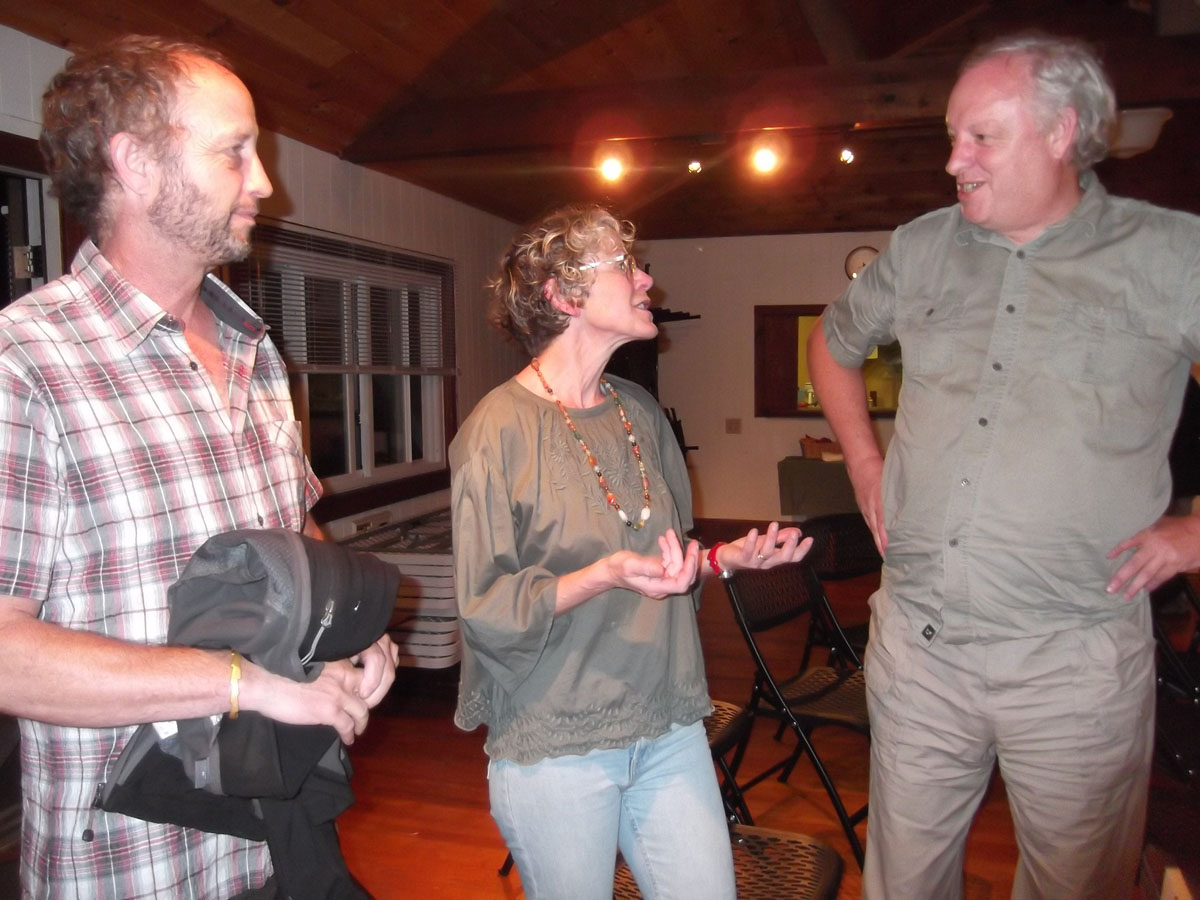“Ghosts on the Land: How Hardscrabble Farmers Changed History,” will be the topic of a program presented by the Historical Society of the Town of Middletown, 778 Cemetery Road, Margaretville on Saturday, Aug. 17.
Admission is by donation.
Essayist Jennifer Kabat of Margaretville will be the speaker and guide of this two-part exploration of the Anti-Rent War of the 1840s, its local impact and its connections to international social movements of the time.
Kabat will share some surprising findings of her research into the history of the land upon which she and husband David Rainbird recently built a home on Bull Run Road near Margaretville. The project led to the article “Ghostlands,” published in March 2019 by the British magazine Granta.

Presenter Jennifer Kabat chats with Rudd (left) and Burr Hubbell, descendants of Anti-Rent farmer-protestors
On August 17 at 5:30 Kabat will lead a short walk on her property at 1314 Bull Run Road to stone foundations of buildings that were once part of the Clum family farm (directions and info: jenkabat@gmail.com). The Clums were tenant farmers on lands owned by the wealthy Livingstons, part owners of the vast Hardenburgh Patent. They lived, worked and died on the rocky farm that they never owned, yet they apparently did not join their neighbors in the uprising Kabat describes as “violent, radical and profoundly ambitious.”
At 7 p.m. at the HSM hall on Cemetery Road, Kabat will present an illustrated talk about the tumultuous Anti-Rent War, when costumed farmers banded together and used guerilla tactics to overthrow the feudal land-holding system that originated in 18th-century England. She will trace the uprising’s connection to the international economic collapse of the 1830s, which spawned an anti-capitalist backlash. “Utopian alternatives were spun, and socialism spread across the country. People believed in possibilities outside of capitalism. Collective values were more important than the self,” she explained.
Some local Anti-Rent leaders aligned themselves with men like Charles Fourier, the French philosopher who espoused communal property and personal and political liberation, and Robert Owen, a Welsh industrialist turned utopian socialist who moved to the US to create one of the first intentional communities practicing communal ownership.
“What amazes me is how internationalist they were in their ideals,” wrote Kabat of Catskill farmers. “That they were drawing on politics from Europe, that this tiny seeming backwater became tied into much bigger politics.”
Jennifer Kabat’s essays have appeared in Granta, BOMB, Harper’s, Virginia Quarterly Review and The White Review. Her piece, “Rain Like Cotton,” was included in Best American Essays, 2018 and her essay “The Rainmaker’s Flood” was a finalist for Notting Hill Editions’ Essay Prize. She teaches at NYU and the New School and is working on a book about grief and modernism: As her parents are dying, she recreates their home in the Bull Run valley and digs into the larger histories of where she grew up and where she lives now, as well as her father’s work and commitment to rural America.
For more information on this and other upcoming programs, visit mtownhistory.org where you can become a member of HSM and donate to the Campaign for a Middletown History Center.
